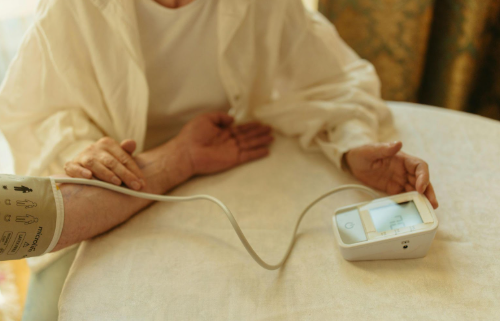Home Health vs. Home Care: Understanding the Difference and Choosing the Right Option

When it comes to healthcare and support for yourself or a loved one, two terms often arise: home health and home care. Although they might sound similar, these services serve distinct roles in providing support and assistance at home. Here are the key differences that will help you choose the right care.
What Is Home Health Care?
Home health care refers to skilled medical services that are provided in the home by licensed healthcare professionals. This type of care is typically prescribed by a physician for individuals who need medical treatment or monitoring at home. It often involves services like nursing care, physical therapy, and other medically supervised interventions.
Key elements of home health care include:
- Skilled Nursing: Services provided by registered nurses (RNs) or licensed practical nurses (LPNs), such as administering medications, managing wound care, monitoring vital signs, and providing injections or IV treatments.
- Physical, Occupational, and Speech Therapy: These therapy services are aimed at helping individuals recover or regain functional abilities. They can help with mobility, speech, and day-to-day tasks, such as eating or dressing, depending on your condition.
- Medical Social Services: These services can assist you and your families in navigating healthcare systems, providing resources for emotional support, and helping with financial or insurance matters.
- Chronic Condition Management: Home health care is essential for managing long-term health conditions such as heart disease, diabetes, or chronic obstructive pulmonary disease (COPD), where regular monitoring and professional medical care are required.
What Is Home Care?
The primary goal of home care is to enhance the individual's comfort, safety, and overall well-being. These services can be long-term and are ideal for those who need assistance with personal care or housekeeping but do not require medical treatments.
Home care includes services such as:
- Personal Care Assistance: These are intended for people who require assistance with activities of daily living (ADLs) such as bathing, dressing, grooming, toileting, and moving from bed to chair. It helps you prevent accidents and injuries that could occur during these tasks, especially for seniors or those with mobility issues.
- Companionship: Companions offer emotional support, engage in meaningful conversations, and help alleviate feelings of depression or anxiety. Additionally, they can accompany clients on outings to appointments, social events, or errands, seeing that you stay connected with the community and engage in activities that improve your mental and emotional well-being.
- Household Assistance: Home care aides assist with light housekeeping tasks like laundry, vacuuming, dusting, and maintaining cleanliness in common areas. They also help with meal preparation so that you receive nutritious and well-balanced meals. Furthermore, they can also run errands such as grocery shopping or picking up prescriptions for you.
- Respite Care: It offers temporary relief, allowing caregivers to recharge and focus on their well-being without worrying about their loved one's care. This service helps prevent burnout, allowing caregivers to return to their responsibilities with renewed energy.
How to Choose the Right Option
Choosing between home health care and home care services depends on a variety of factors that relate to the specific needs, preferences, and circumstances of the individual requiring assistance. Here’s how you can determine which option is best:
Consider the Duration of Care
Home health care is typically short-term, designed to address specific medical needs such as recovery from surgery or treatment for a chronic illness. It is usually scheduled based on medical requirements.
Home care, however, is more flexible and can be arranged for ongoing, long-term support. It’s ideal if you require help with daily activities over a prolonged period.
Frequency of Health Assessments and Monitoring
If an individual needs regular health assessments, such as blood pressure, blood sugar, or oxygen levels checked, home health care providers are trained to perform these tasks. They also monitor any changes in your condition to offer proper care.
Nurses or therapists will visit regularly and report back to the doctor if any significant health issues arise. In contrast, home care aides do not have the training to monitor vital signs or provide regular health assessments.
Insurance Coverage
Home health care is often covered by insurance policies, including Medicare and Medicaid, when prescribed by a doctor. It’s important to check with your insurance provider to determine if home health services are covered.
In contrast, home care is generally not covered by insurance plans, so you may need to pay out-of-pocket or explore long-term care insurance options.
Budget
Home care services tend to be more affordable than home health care since they do not require licensed medical professionals. However, if you are someone who requires frequent or specialized medical attention, the cost of home health care might be necessary and justified.
Additionally, home health care can help prevent costly hospital readmissions. It's important to evaluate the level of care needed, which can reduce your emergency medical costs.
Personal Preferences
Consider how much assistance the individual still needs. If they are relatively independent but just require occasional help with activities like bathing or meal prep, home care may be enough. To provide a higher level of medical supervision and assistance, home health care may be required if the individual is dependent on others for mobility. It is also necessary when there is a need for medication administration or daily health management.
Regulatory Requirements and Credentials
Home health care typically involves registered healthcare professionals who must meet state and federal regulatory standards. This ensures that they are qualified to provide medical services, such as administering medications or performing wound care.
Home care aides are usually not required to have formal healthcare credentials, though they may receive training for specific non-medical tasks. Knowing the level of qualification required for the care you need will help guide your choice.
The right care option is deeply personal and crucial. Our expert healthcare providers at
Five Star Home Health Care Agency can discuss available services and make sure that you’re choosing the option that best aligns with your goals.
Contact us today!










